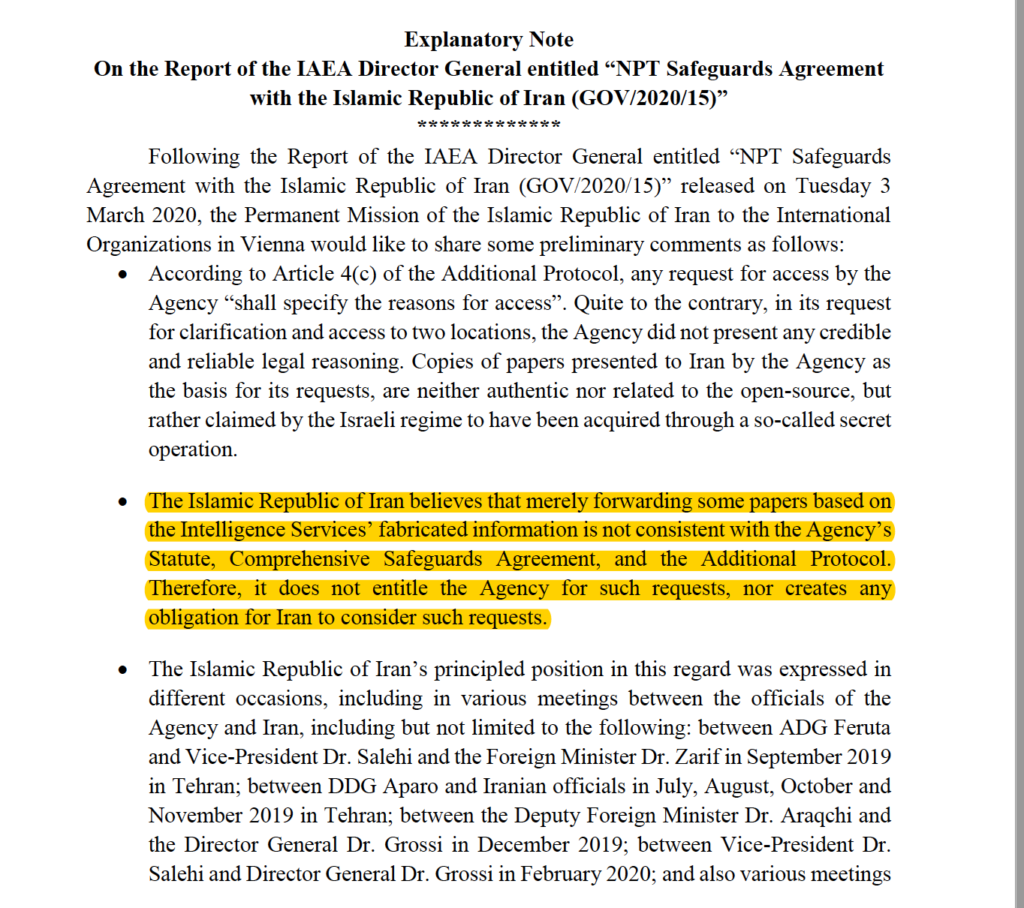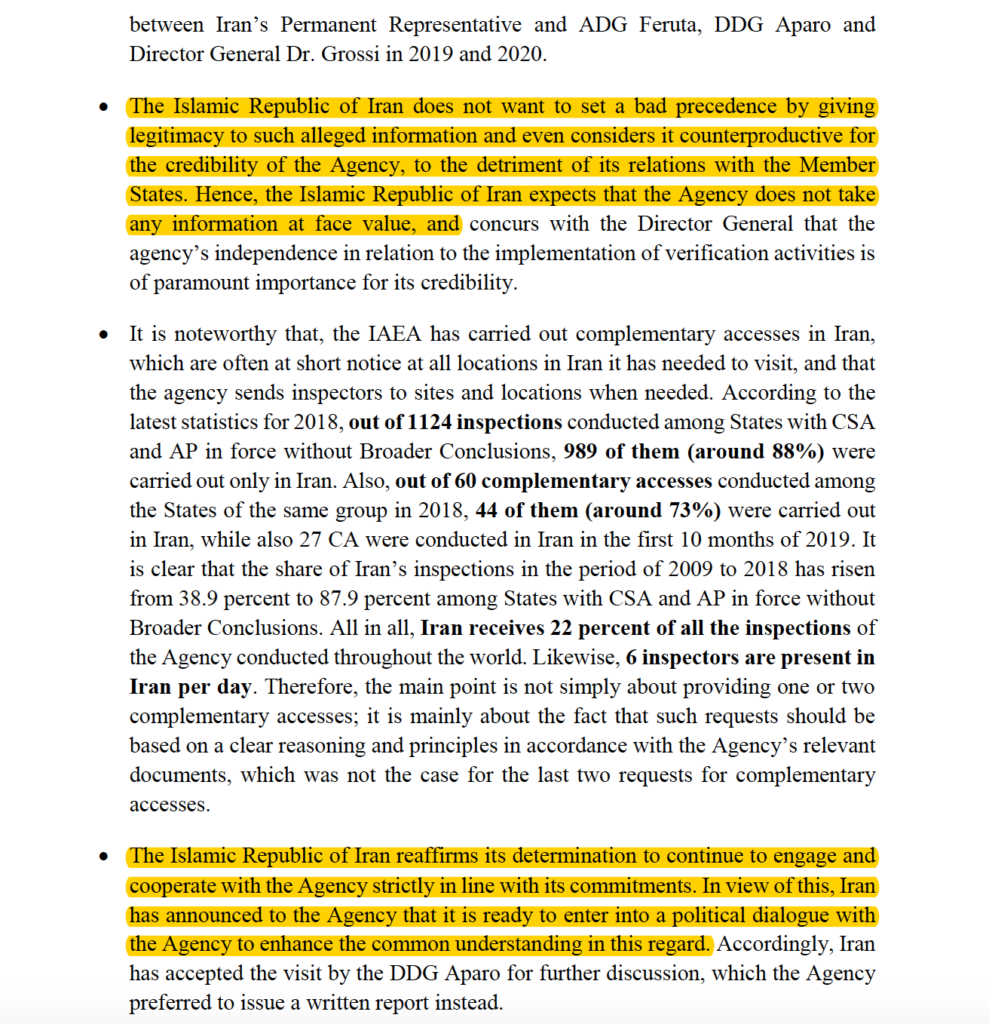There’s good YouTube material that needs viewing.
Author Archives: kerr
IED
J Clapper on Looking Glass Missions
From his book Facts and Fears: Hard Truths from a Life in Intelligence:


Iran on IAEA CSA Compliance
So folks have properly focused on the 3 March IAEA report’s description of Iran’s position regarding its CSA compliance:

But this paragraph from Iran’s response to the IAEA strikes a somewhat different tone, albeit after justifying Tehran’s lack of cooperation with the agency:

Make of this what you will.
Dead Embryonic Cells
Laboratory sickness/Infects humanity/No hope for cure/Die by technology
India MEA on Nuclear Use Policy
In a March 4 reply to the Lok Sabha, India’s Minstery of External Affairs, explained that
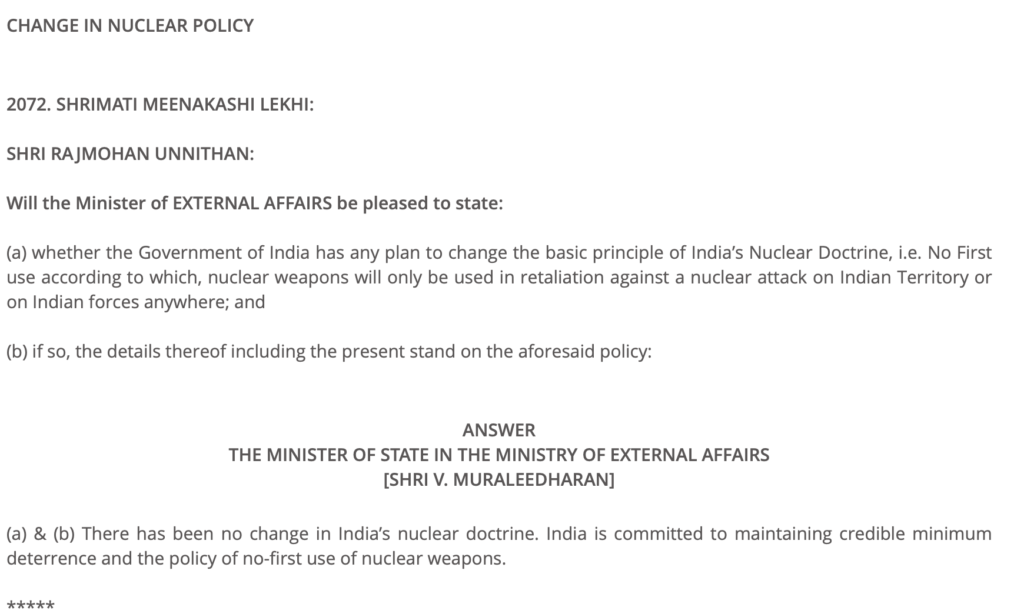
New State Department Documents on NPT
State ISN tweeted a link to some newly-declassified documents related to the NPT.
There is assuredly material of considerable scholarly value in the collection. But this one gives insight into the minutiae of such a diplomatic effort.
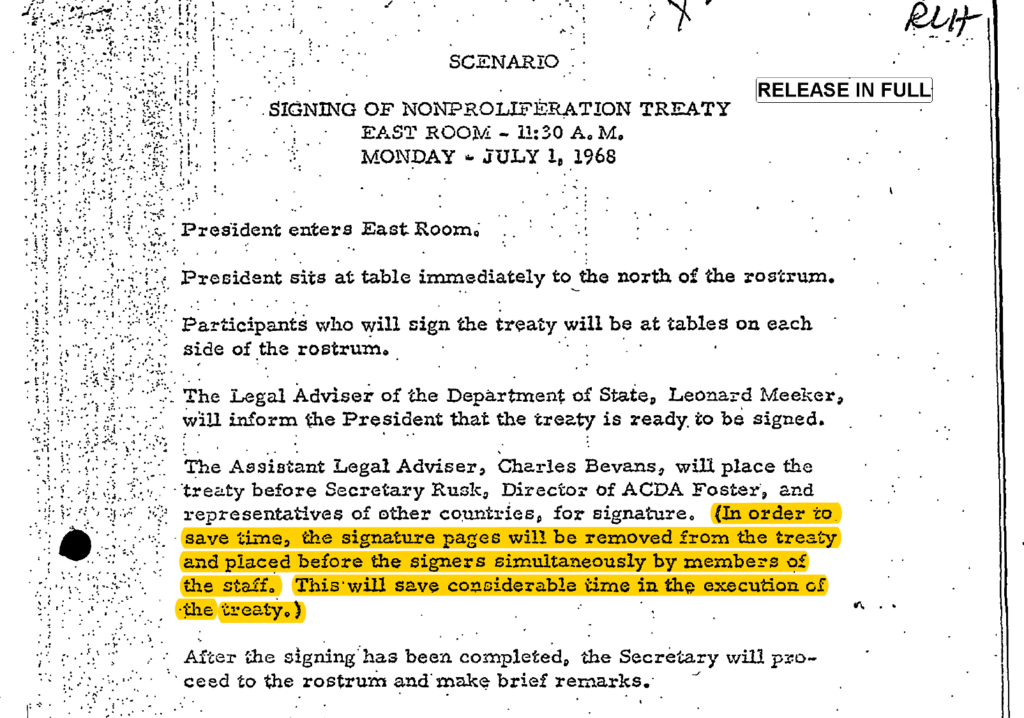
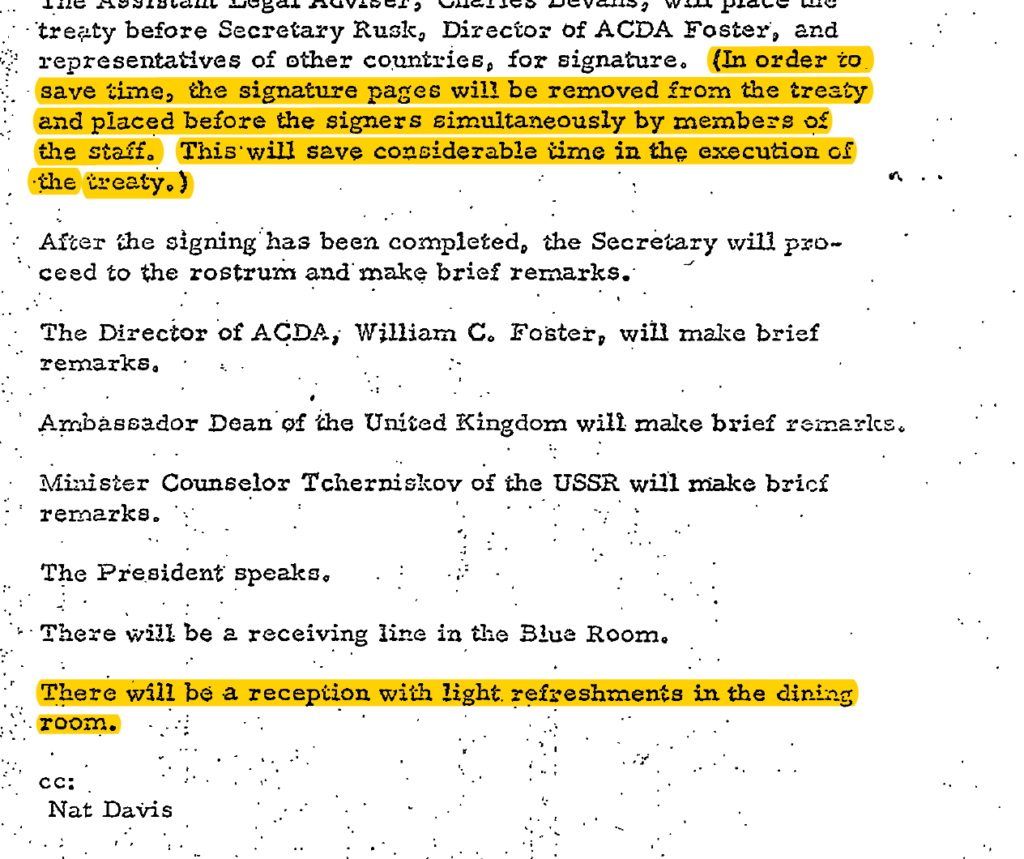
I really love this last one. I’m genuinely not taking the piss; this stuff is important.

Iran Response to 3 March IAEA Report
Nuclear Blast Records
Speaks for itself.
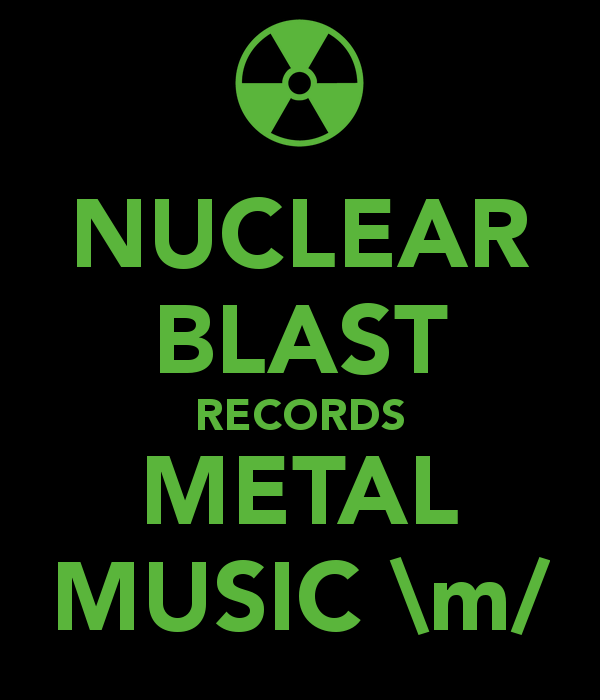
Wicked metal


